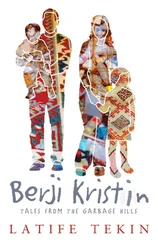Rudyard Kipling - Plain Tales from the Hills
Здесь есть возможность читать онлайн «Rudyard Kipling - Plain Tales from the Hills» весь текст электронной книги совершенно бесплатно (целиком полную версию без сокращений). В некоторых случаях можно слушать аудио, скачать через торрент в формате fb2 и присутствует краткое содержание. ISBN: , Жанр: Классическая проза, на английском языке. Описание произведения, (предисловие) а так же отзывы посетителей доступны на портале библиотеки ЛибКат.
- Название:Plain Tales from the Hills
- Автор:
- Жанр:
- Год:неизвестен
- ISBN:978-1-4340-0550-2
- Рейтинг книги:5 / 5. Голосов: 1
-
Избранное:Добавить в избранное
- Отзывы:
-
Ваша оценка:
- 100
- 1
- 2
- 3
- 4
- 5
Plain Tales from the Hills: краткое содержание, описание и аннотация
Предлагаем к чтению аннотацию, описание, краткое содержание или предисловие (зависит от того, что написал сам автор книги «Plain Tales from the Hills»). Если вы не нашли необходимую информацию о книге — напишите в комментариях, мы постараемся отыскать её.
Plain Tales from the Hills — читать онлайн бесплатно полную книгу (весь текст) целиком
Ниже представлен текст книги, разбитый по страницам. Система сохранения места последней прочитанной страницы, позволяет с удобством читать онлайн бесплатно книгу «Plain Tales from the Hills», без необходимости каждый раз заново искать на чём Вы остановились. Поставьте закладку, и сможете в любой момент перейти на страницу, на которой закончили чтение.
Интервал:
Закладка:
Mrs. Hauksbee did her best to hold him in play, but, after two dances, he crossed over to his wife and asked for a dance.
«I’m afraid you’ve come too late, Mister Bremmil,» she said, with her eyes twinkling.
Then he begged her to give him a dance, and, as a great favor, she allowed him the fifth waltz. Luckily 5 stood vacant on his programme. They danced it together, and there was a little flutter round the room. Bremmil had a sort of notion that his wife could dance, but he never knew she danced so divinely. At the end of that waltz he asked for another — as a favor, not as a right; and Mrs. Bremmil said: «Show me your programme, dear!» He showed it as a naughty little schoolboy hands up contraband sweets to a master. There was a fair sprinkling of «H» on it besides «H» at supper. Mrs. Bremmil said nothing, but she smiled contemptuously, ran her pencil through 7 and 9—two «H’s» — and returned the card with her own name written above — a pet name that only she and her husband used. Then she shook her finger at him, and said, laughing: «Oh, you silly, silly boy!»
Mrs. Hauksbee heard that, and — she owned as much — felt that she had the worst of it. Bremmil accepted 7 and 9 gratefully. They danced 7, and sat out 9 in one of the little tents. What Bremmil said and what Mrs. Bremmil said is no con cern of any one’s.
When the band struck up «The Roast Beef of Old England,» the two went out into the verandah, and Bremmil began looking for his wife’s dandy (this was before «rickshaw» days) while she went into the cloak-room. Mrs. Hauksbee came up and said: «You take me in to supper, I think, Mr. Bremmil.» Bremmil turned red and looked foolish. «Ah — h’m! I’m going home with my wife, Mrs. Hauksbee. I think there has been a little mistake.» Being a man, he spoke as though Mrs. Hauksbee were entirely responsible.
Mrs. Bremmil came out of the cloak-room in a swansdown cloak with a white «cloud» round her head. She looked radiant; and she had a right to.
The couple went off in the darkness together, Bremmil riding very close to the dandy.
Then says Mrs. Hauksbee to me — she looked a trifle faded and jaded in the lamplight: «Take my word for it, the silliest woman can manage a clever man; but it needs a very clever woman to manage a fool.»
Then we went in to supper.
THROWN AWAY
«And some are sulky, while some will plunge
[So ho! Steady! Stand still, you!]
Some you must gentle, and some you must lunge.
[There! There! Who wants to kill you?]
Some — there are losses in every trade—
Will break their hearts ere bitted and made,
Will fight like fiends as the rope cuts hard,
And die dumb-mad in the breaking-yard.»
— Toolungala Stockyard ChorusTo rear a boy under what parents call the «sheltered life system» is, if the boy must go into the world and fend for himself, not wise. Unless he be one in a thousand he has certainly to pass through many unnecessary troubles; and may, possibly, come to extreme grief simply from ignorance of the proper proportions of things.
Let a puppy eat the soap in the bath-room or chew a newly-blacked boot. He chews and chuckles until, by and by, he finds out that blacking and Old Brown Windsor make him very sick; so he argues that soap and boots are not wholesome. Any old dog about the house will soon show him the unwisdom of biting big dogs’ ears. Being young, he remembers and goes abroad, at six months, a well-mannered little beast with a chastened appetite. If he had been kept away from boots, and soap, and big dogs till he came to the trinity full-grown and with developed teeth, just consider how fearfully sick and thrashed he would be! Apply that motion to the «sheltered life,» and see how it works. It does not sound pretty, but it is the better of two evils.
There was a Boy once who had been brought up under the «sheltered life» theory; and the theory killed him dead. He stayed with his people all his days, from the hour he was born till the hour he went into Sandhurst nearly at the top of the list. He was beautifully taught in all that wins marks by a private tutor, and carried the extra weight of «never having given his parents an hour’s anxiety in his life.» What he learnt at Sandhurst beyond the regular routine is of no great consequence. He looked about him, and he found soap and blacking, so to speak, very good. He ate a little, and came out of Sandhurst not so high as he went in. Them there was an interval and a scene with his people, who expected much from him. Next a year of living «unspotted from the world» in a third-rate depot battalion where all the juniors were children, and all the seniors old women; and lastly he came out to India, where he was cut off from the support of his parents, and had no one to fall back on in time of trouble except himself.
Now India is a place beyond all others where one must not take things too seriously — the midday sun always excepted. Too much work and too much energy kill a man just as effectively as too much assorted vice or too much drink. Flirtation does not matter because every one is being transferred and either you or she leave the Station, and never return. Good work does not matter, because a man is judged by his worst output and another man takes all the credit of his best as a rule. Bad work does not matter, because other men do worse, and incompetents hang on longer in India than anywhere else. Amusements do not matter, because you must repeat them as soon as you have accomplished them once, and most amusements only mean trying to win another person’s money. Sickness does not matter, because it’s all in the day’s work, and if you die another man takes over your place and your office in the eight hours between death and burial. Nothing matters except Home furlough and acting allowances, and these only because they are scarce. This is a slack, kutcha country where all men work with imperfect instruments; and the wisest thing is to take no one and nothing in earnest, but to escape as soon as ever you can to some place where amusement is amusement and a reputation worth the having.
But this Boy — the tale is as old as the Hills — came out, and took all things seriously. He was pretty and was petted. He took the pettings seriously, and fretted over women not worth saddling a pony to call upon. He found his new free life in India very good. It does look attractive in the beginning, from a Subaltern’s point of view — all ponies, partners, dancing, and so on. He tasted it as the puppy tastes the soap. Only he came late to the eating, with a growing set of teeth. He had no sense of balance — just like the puppy — and could not understand why he was not treated with the consideration he received under his father’s roof. This hurt his feelings.
He quarrelled with other boys, and, being sensitive to the marrow, remembered these quarrels, and they excited him.
He found whist, and gymkhanas, and things of that kind (meant to amuse one after office) good; but he took them seriously too, just as he took the «head» that followed after drink. He lost his money over whist and gymkhanas because they were new to him.
He took his losses seriously, and wasted as much energy and interest over a two-goldmohur race for maiden ekka-ponies with their manes hogged, as if it had been the Derby. One-half of this came from inexperience — much as the puppy squabbles with the corner of the hearth-rug — and the other half from the dizziness bred by stumbling out of his quiet life into the glare and excitement of a livelier one. No one told him about the soap and the blacking because an average man takes it for granted that an average man is ordinarily careful in regard to them. It was pitiful to watch The Boy knocking himself to pieces, as an over-handled colt falls down and cuts himself when he gets away from the groom.
Читать дальшеИнтервал:
Закладка:
Похожие книги на «Plain Tales from the Hills»
Представляем Вашему вниманию похожие книги на «Plain Tales from the Hills» списком для выбора. Мы отобрали схожую по названию и смыслу литературу в надежде предоставить читателям больше вариантов отыскать новые, интересные, ещё непрочитанные произведения.
Обсуждение, отзывы о книге «Plain Tales from the Hills» и просто собственные мнения читателей. Оставьте ваши комментарии, напишите, что Вы думаете о произведении, его смысле или главных героях. Укажите что конкретно понравилось, а что нет, и почему Вы так считаете.












